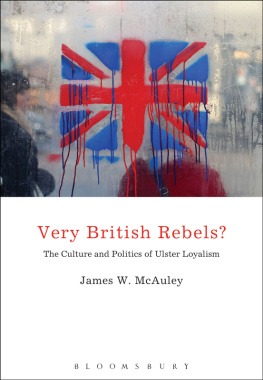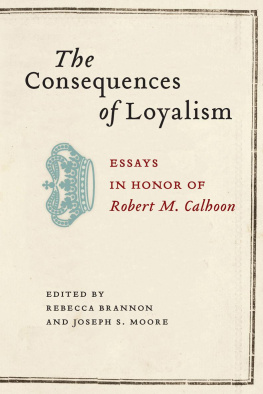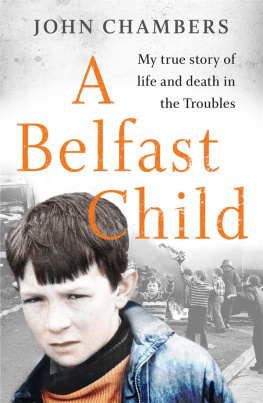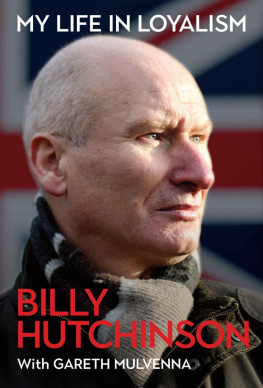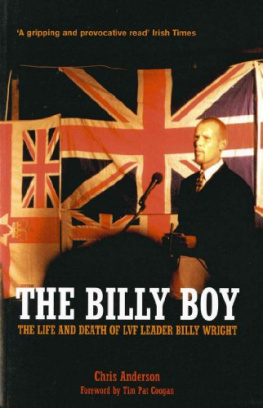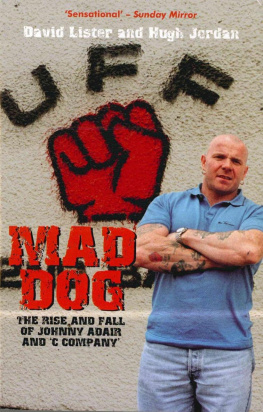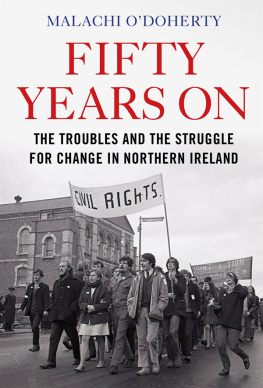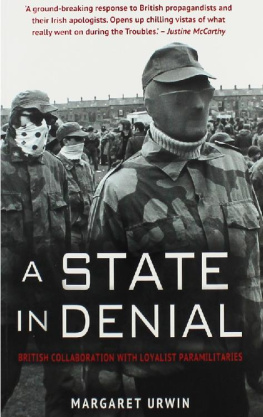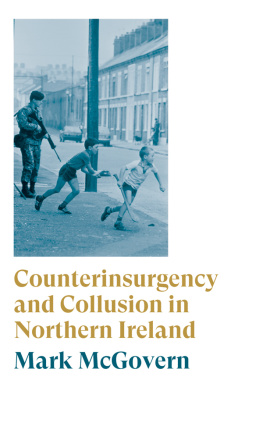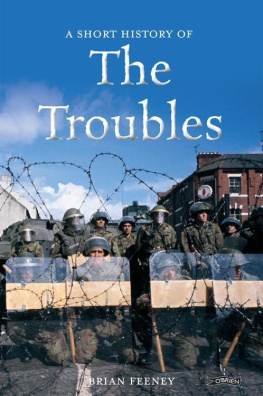As ever, I owe my thanks to Stephanie, Charlotte and Rowan for all their support and for putting up with my absences.
Most of all my sincere gratitude goes to Doctors Cameron Irving, Rob Stevenson and Tufail Patankar, alongside the nursing staff and ambulance service of West Yorkshire. Without their dedication and skill, this book would never have been finished.
In seeking to unravel the complexities of Northern Ireland, few groups have proved such an enigma as those proclaiming Ulster loyalism as their principal creed and fundamental political motivation. For many observers, their pledge of loyalty to the British state is at best an unrequited love affair, while the paradox of those asserting to be its most devoted citizens directly challenging the statute, imperative and representatives of the same state remains all but incomprehensible. But conflicts between loyalists and the state are long-standing and have manifested throughout the history of Northern Ireland. Indeed, it is possible to argue that it was loyalist resistance and defiance that gave rise to the existence of Northern Ireland and contributed directly to the framing of its politics for the next fifty years. It remains central to its future political direction.
Loyalism has also regularly positioned itself in political opposition to both more mainstream Unionism and the government at Westminster (throughout this book I use Unionism/Unionist to refer to party politics and unionism/unionist when discussing the broader social movement). Nor has loyalist resistance always been restricted to the political sphere or public arena. It is often forgotten, for example, that the first member of the state forces killed in the most recent phase of violent conflict (most commonly, if somewhat euphemistically, referred to as the Troubles) was a Royal Ulster Constabulary (RUC) officer shot by loyalists during a riot in October 1969.
Much more recent tensions arising in the latter part of 2012 and the early months of 2013 saw Northern Irish society convulsed by a series of widespread demonstrations led onto the streets by loyalists remonstrating at the changed regulations permitting the flying of the Union flag at Belfast City Hall only on designated occasions rather than on a daily basis. The protest rendered parts of Northern Ireland at a standstill as demonstrators blocked major roads, clashed with police and caused widespread disruption to the everyday lives of many. By the early summer of 2013, loyalist street demonstrations over the issue had begun to abate, only to be almost immediately replaced by another very public row and further protests surrounding the annual 12th July parade by the Grand Orange Lodge of Ireland (the Orange Order).
This time much of the friction centred on the decision by the Parades Commission (the public body responsible for placing restrictions on any parades judged contentious) to ban an Orange Order march in north Belfast returning from the main procession to take a route that passed along an interface with the nationalist Ardoyne area. Loyalists reacted with unconcealed ire, and following another period of sustained street violence, aimed largely at the Police Service of Northern Ireland (PSNI), the protests assumed a different form with the establishment of a loyalist civil rights camp at Twaddell Avenue in north Belfast. Those in attendance set about overseeing what became the almost ritualistic daily attempt by Orange Order members and bandsmen to march the route only to be blocked by PSNI members.
The incumbents of the camp also set about highlighting what they saw as the continued attack on their Orange cultural heritage and a diminution of what many believed was still their right to march on their traditional routes. Moreover, many argued that the parade ban had been implemented largely because of violent protests from within the republican community (the march had been highly contested for some time, but the remonstrations had been particularly fierce in the previous two years) and the decision symbolized a peace process bias towards Irish nationalism and republicanism.
The prevalence of disorder and publically organized opposition to government-supported legislation around both the flags and parades disputes again brought to the fore what many see as the essential contradiction in the collective ethos of Ulster loyalism. The journalist Derek Brown previously highlighted this incongruity when he wrote this, following an earlier outbreak of loyalist inspired violence in the late 1990s:
We call them loyalists, for there is as yet no more convenient word for those who are stoning, firebombing and even shooting at Crown forces in Northern Ireland. They say they are loyal to Queen and country, yet they are prepared to fight the British government and defy the will of the majority of British people to prove it.
This conundrum, of how the political expression of those who claim to be the most loyal of citizens declares their primary adherence to the British Crown and to the imagined political community of Ulster, rather than to the government or political representatives of Westminster, has continued to bewilder and exasperate observers in equal measures.
Reflecting on this theme following another outbreak of loyalist street violence in Belfast, Theresa Villiers as Secretary of State for Northern Ireland pointed to the contradiction of British citizens using force to emphasize their Britishness and loyalty, claiming: the idea that British identity and culture can be defended by people who wrap themselves in the union flag and attack police officers is grotesque.

